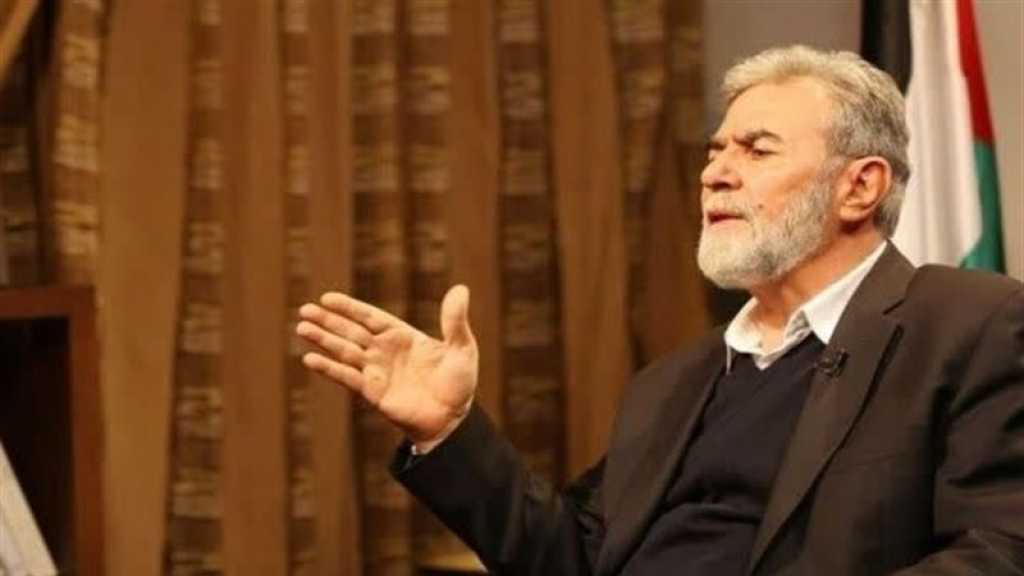Hamas` Victory: Not The Democratization - The US Expected But The Needed Wake Up Call
Source: EI, 28-1-2006.
By Laurie King-Irani
Wednesday`s landslide victory for Hamas over Fatah in the Palestinian legislative elections should surprise no one. More than a dozen years after the Oslo accords, Palestinians have passed a public verdict on the Palestinian Authority (PA) and the old guard that it represents: They failed dismally at the task of pressing for Palestinians` inalienable rights under international law and a bevy of UN resolutions.
Hamas` victory can turn out to be a very positive development if handled with sensitivity by the US, "Israel" and the EU. Wednesday`s election results, coming on the heels of Ariel Sharon`s apparent demise, may well open new spaces for vision and action, particularly among EU members who have, over the last year, misplaced their collective backbone when it came to speaking out unequivocally against massive and systematic "Israeli" violations of the Fourth Geneva Convention in Palestine.
The "Palestinian street" has long considered the PA to be corrupt, high-handed, and worse: far too subservient and obsequious to "Israeli" and US demands. Its integrity was long ago compromised, and its effectiveness undermined, by a pronounced dependence on external funds, humiliating kow-towing to "Israel", and its leaders` craven fears of risking their privileges and power by siding with the people. Contrary to being a dramatically negative and cataclysmic event, Hamas` victory is in fact a welcome sign of change and a possible turning point, not a breaking point, in the long, painful, and cynically named "peace process."
It is also an index of democracy in action. By assuming the role of the governors, not the governed, Hamas must now grapple with the gaps between ideological purity and political compromises. Rhetoric and demonstrations will only get it so far from now on. Effective politicking, of the sort rarely seen since Oslo, will be crucial to Hamas` success.
International law versus ideological posturing
The Palestinians have employed a variety of ideologies - emancipatory, universalist, Arab nationalist, as well as Islamic - to press for their rights on the world stage. But in the end, their "ace in the hole" was never ideological posturing but rather, demanding "Israeli" accountability before the international community on the clear strength of UN resolutions, the Universal Declaration of Human Rights, and International Humanitarian Law.
Hamas` victory was all but guaranteed by the draconian unilateral policies adopted by the "Israeli" government, which did everything it could to ensure it had "no partner for peace." Even so-called "Israeli" doves enthusiastically rallied to support Ariel Sharon`s attempts to limit the Palestinian "demographic threat," although this meant violating international humanitarian law. A country whose peace movement is sympathetic to ethnic cleansing is a country with serious problems, a country in need of a reality check. Hamas` emergence may be just such a wake-up call.
Sharon, as well as most Likud members, initially opposed the building of "Israel"`s "security barrier," or Apartheid wall, on the grounds that it would only clarify and institutionalize the 1967 borders. Ever the wily fox, however, Sharon quickly realized that building the wall on Palestinian lands in a manner that would be advantageous for illegal settlements and devastating for Palestinians would advance the most hard-line of all Likud visions and practices, which amount to Apartheid, a clear violation of International Law and accepted interenational norms.
The massive and ugly wall has not prevented subsequent bombings, has been decreed a grave violation of International Law by a July 2004 advisory ruling of the International Court of Justice, and is simply creating more anger, frustration, and humiliation among Palestinians, i.e., providing the basic ingredients for making more young people conclude that "suicide" (self-sacrifice) bombings are rational and meaningful response to the deep existential crises afflicting their and their families` lives. The wall is nothing but land theft and the crushing of Palestinian self-determination disguised as a security measure.
"Israel"`s 2005 withdrawal from Gaza was an attempt to "dump" the Gaza quagmire it had created on Palestinian laps. If the Oslo process was an attempt to subcontract the occupation to the PA, then the unilateral withdrawal without any coordination with a Palestinian partner was a way of sub-contracting violence and abuses against Palestinians to the Palestinians themselves.
Despite the Oslo Accords, which blithely sidestepped all relevant UN resolutions and International Law, particularly the requirements of the Fourth Geneva Convention concerning the proper behavior of an occupying power, the "Israeli" occupation never ended. In fact, more settlements were built, more lands and water resources stolen, in the 1990s than in the decade preceding Oslo, according to studies by the Foundation for Middle East Peace. Palestinians suffered from increasing economic hardships and ever tighter limitations on their freedom of movement after the institution of harsh "closure" measures by the "Israeli" Army in 1994, even before self-sacrifice bombings had begun. Poverty and famine are now a daily scourge in many communities in the West Bank and Gaza. Given these stark realities, is it any wonder Palestinians refused to vote again for the PA?
Hamas` victory stems, ultimately, from the blatant corruption, mediocrity, and lack of leadership in the Palestinian Authority, the elite of which were supported and propped up by successive US administrations. The late PLO Chairman Yasser Arafat governed the Palestinians with a mixture of patriarchy and a mafia-like system of patronage that helped to fragment institutions and through them, families and regions. The Palestinian leadership also ignored the emergence of a new generation impatient with the lack of future job prospects and disgusted by the Byzantine politics of Fatah and the Palestinian Authority.
Hamas employed shortcomings and contradictions by offering a clear and simple message: "Salvation comes from religion and the faithful application of Qur`anic principles, which are based on social justice and human dignity." Over the last 25 years, the Islamic movement has created an impressive framework of effective and minimally corrupt social services institutions to help the poor, widowed, orphaned, and those who have sacrificed life and limb for the liberation of Palestine.




